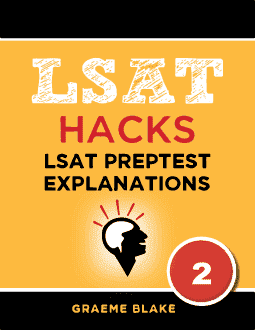QUESTION TEXT: All intelligent people are nearsighted. I am very nearsighted…
QUESTION TYPE: Flawed Parallel Reasoning
CONCLUSION: I am a genius.
REASONING: I am nearsighted. Every genius is nearsighted.
ANALYSIS: This is a terrible argument, and relies on an incorrect reversal. It is true that every genius is nearsighted. That does not mean that every nearsighted person is a genius.
It is: I N rather than N I
That is one logical flaw. The other flaw is that we only have evidence about intelligent people whereas the conclusion is that the writer is a genius. There is a big difference between intelligence and genius. Genius is extreme intelligence.
___________
- This ignores the fact that the logical opposite of intelligent is “not intelligent.” Stupid is too strong. However, the rest of the argument is good. If all intelligent people are near-sighted then this person is not intelligent.
- This commits the reversal flaw, but not the flaw of excess.
- This is just stupid. There is no relation between number of legs and size. Otherwise millipedes would be the largest creatures on earth.
- CORRECT. This contains an incorrect reversal flaw (it is Tall Happy, not Happy Tall), and also the flaw of assuming that extreme happiness must translate into “extreme” tallness.
- This is a good argument. G N. Don’t fall for the trap of picking the answer choice that has language similar to that used in the stimulus.
Recap: The question begins with “All intelligent people are nearsighted. I am very nearsighted”. It is a Flawed Parallel Reasoning question. Learn more about LSAT Flawed Parallel questions in our guide to LSAT Logical Reasoning question types.


Leave a Reply